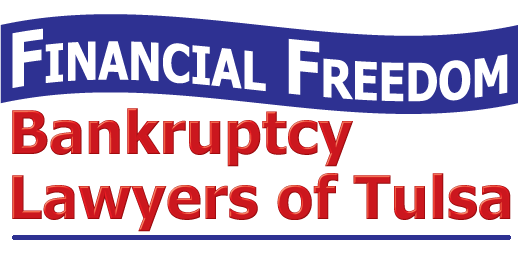Oklahoma Bankruptcy HelpDo I Have Too Many Assets to File for a Tulsa Bankruptcy?
The penniless debtor is an old myth that we carry in our mind’s eye when we think of bankruptcy. It is just a myth. Most people who file for bankruptcy in this day and age have assets. They file bankruptcy to protect those assets. Bankruptcy does not mean you have lost everything. Bankruptcy is a way to keep you from losing everything.
Many people make the mistake of waiting too long to file for bankruptcy because they think they might not qualify. By then, these debtors are at risk of losing what assets that may be able to protect by filing for bankruptcy.
Bankruptcy is meant to provide a fresh start for people who do not have enough money to pay their debts. In most cases, if you are truly unable to pay your debts, you will qualify for bankruptcy.
For individual filers, there are two bankruptcy options: Chapter 7 and Chapter 13. Generally speaking, Chapter 7 is used by individuals with limited income and a large amount of unsecured debt, such as credit card debt. These filers usually have few assets. Chapter 13 is usually chosen by those filers who have a steady source of income and have some assets in addition to their debts, Assets might include a house, car, and retirement accounts. Some of these assets may be collateral for a loan not fully aid for yet. Both Chapter 7 and Chapter 13 have qualification requirements.
The Chapter 7 Means Test
To qualify for a Chapter 7 bankruptcy, you must pass a “means” test. The “means” test is a tool to determine whether a debtor has enough means to make payments to their creditors. If your income is below the median income in your state for a family of your size, you will pass the means test. For example, the 2018 median income in Oklahoma for a family of 2 is $58,426.
If your family of 2 has an income above that median amount, you may still be able to file for Chapter 7 if your income, after certain allowable expenses, is insufficient to allow you enough disposable income to pay your creditors. Necessary expenses such as food, housing, transportation, childcare expenses, and the like are considered to be allowable expenses. Luxuries are not. An experienced Tulsa bankruptcy attorney should be able to perform this calculation for you and let you know whether you will likely pass the means test.
Crunching these numbers is important and without enough background, you could make mistakes in the calculations that could be costly to you. Bankruptcy attorneys are well-versed in this process and can make sure that your calculations are complete, and correct–taking into account such things as derived income for the “look back period.”
How to Find Out if You Qualify for Bankruptcy
A Tulsa bankruptcy attorney can evaluate your monthly income, your living expenses and your outstanding debts to help you determine if you can qualify for a Chapter 7 filing. If you do not qualify for Chapter 7, you can explore a Chapter 13 filing with your attorney. In a Chapter 13 bankruptcy, you will create a debt repayment plan ad make payments to the bankruptcy trustee under than plan for the plan period, 3 to 5 years. Any remaining debt will then be discharged.
Don’t wait until it is too late. Help yourself now.
For a low-cost initial consult with a bankruptcy attorney in Tulsa, contact Financial Freedom Bankruptcy Lawyers of Tulsa today at 918-786-9600 or send an e-mail using the link at the top of this page. There is no reason not to know whether you qualify for bankruptcy in Oklahoma. The sooner you find out, the sooner you will have the information you need to make an informed decision about when to file for bankruptcy.




